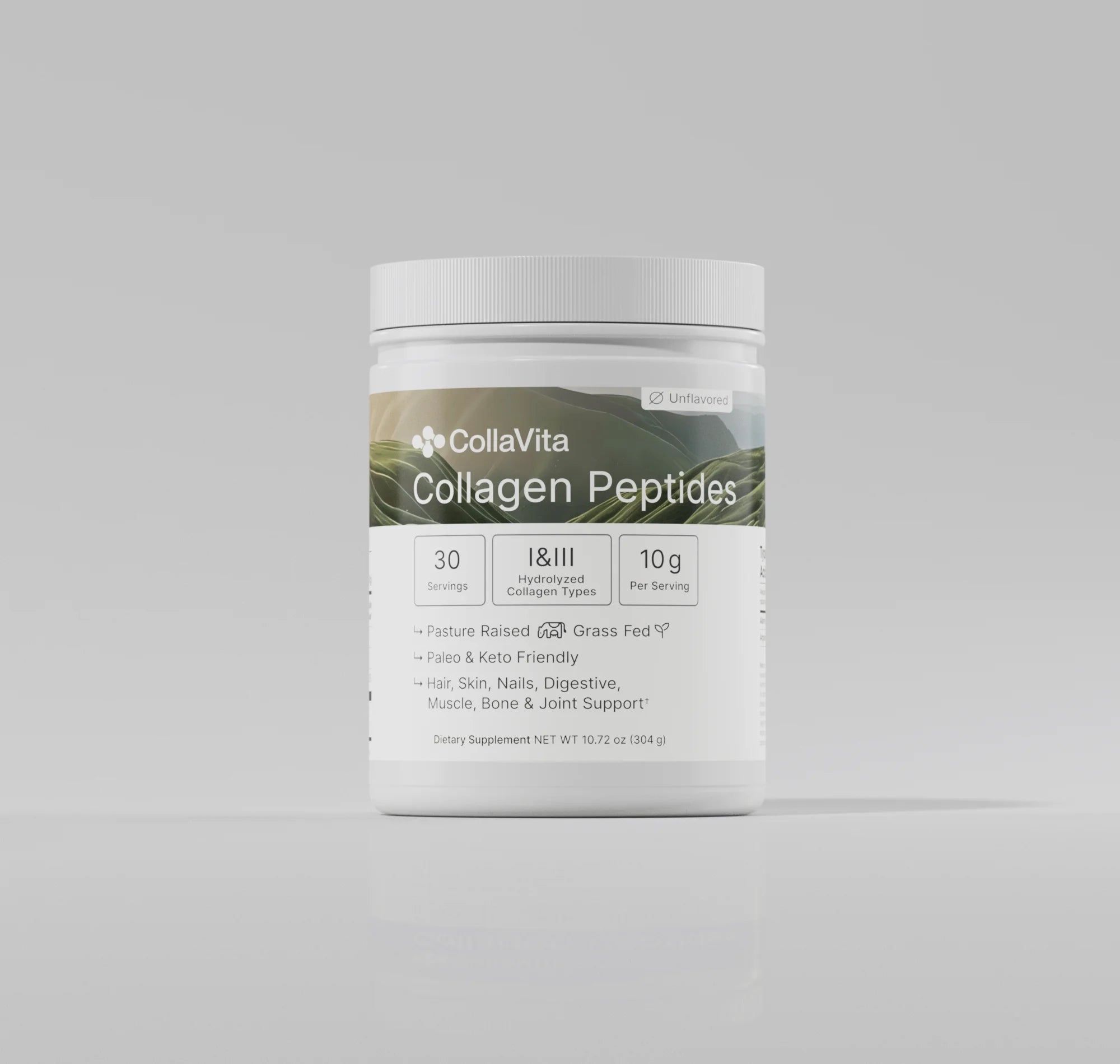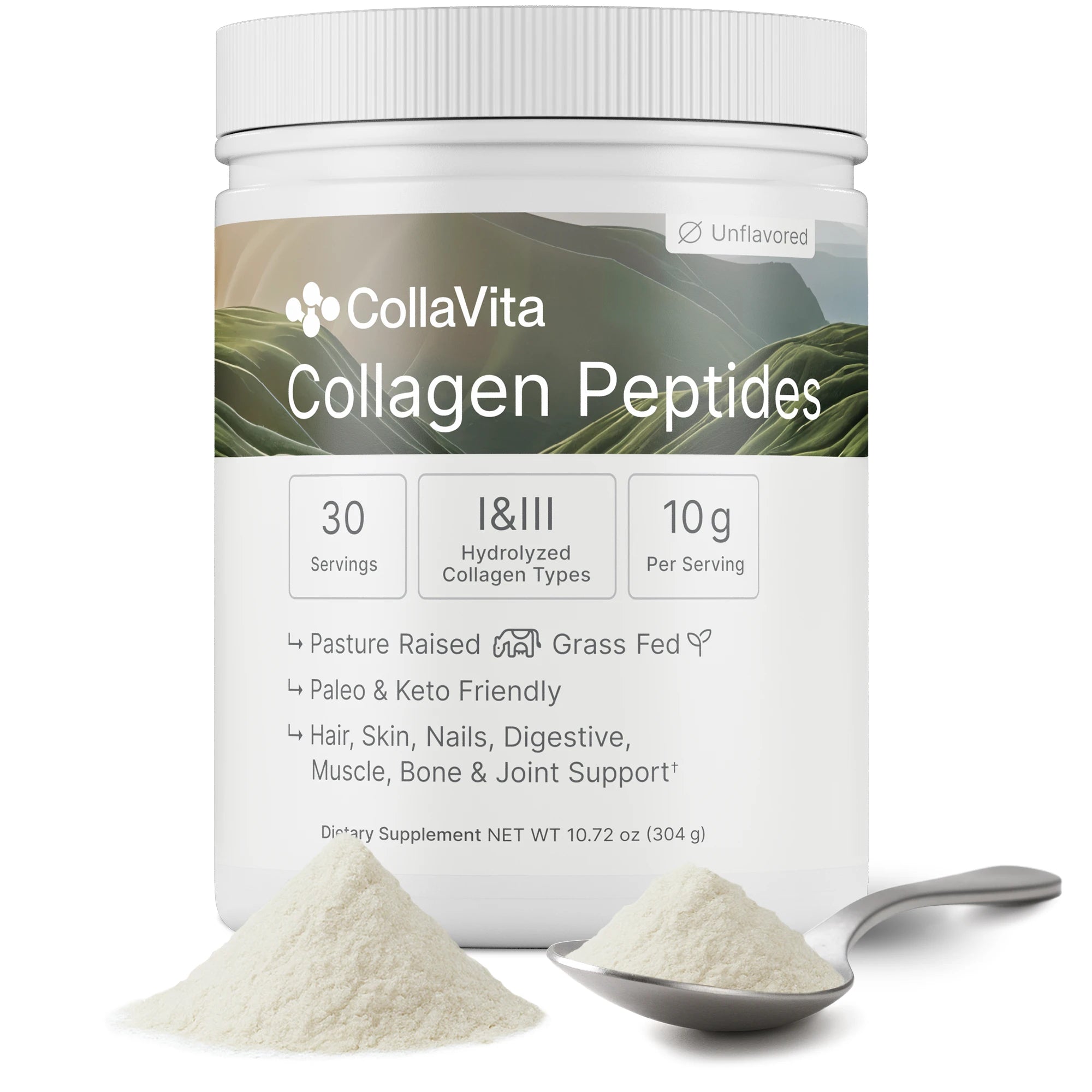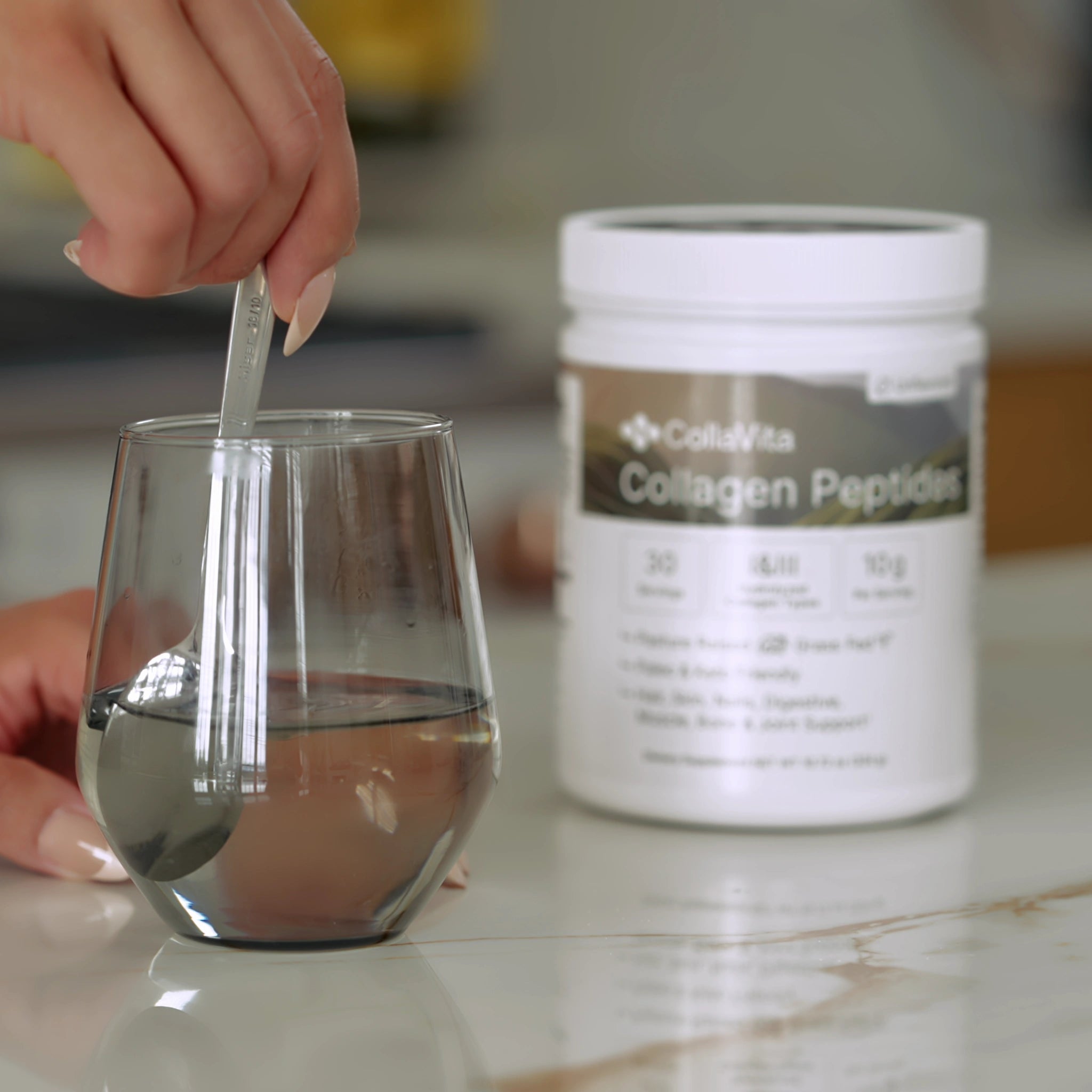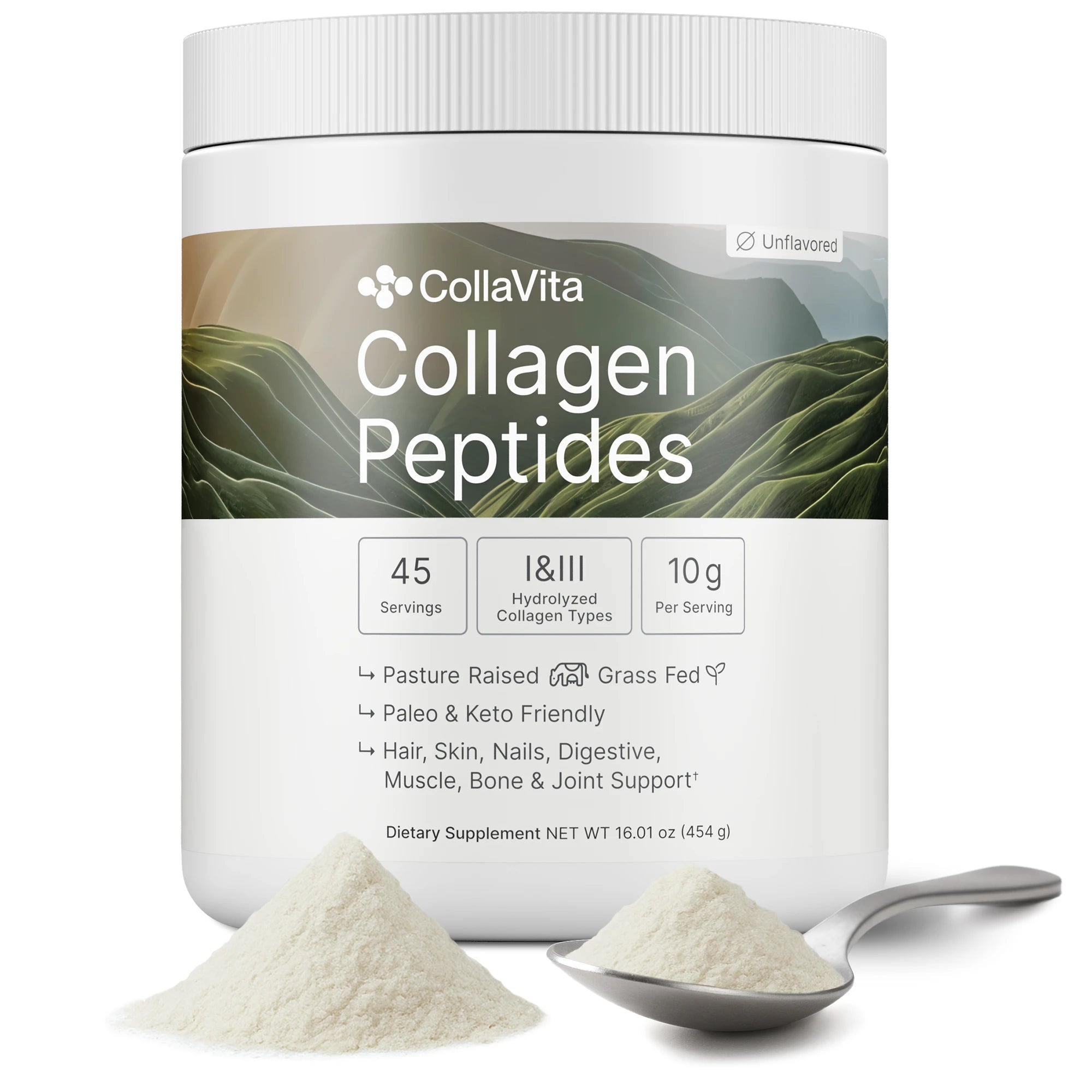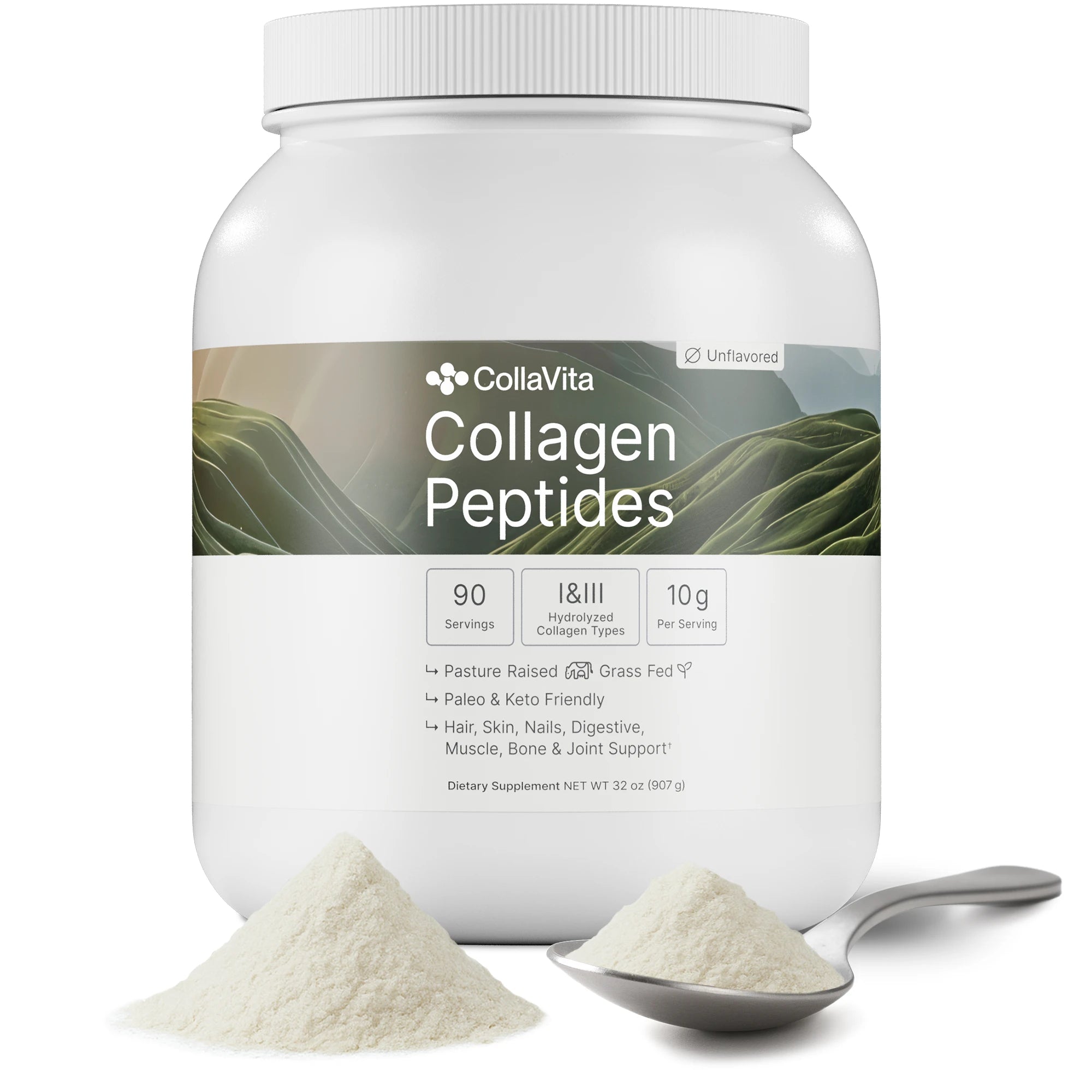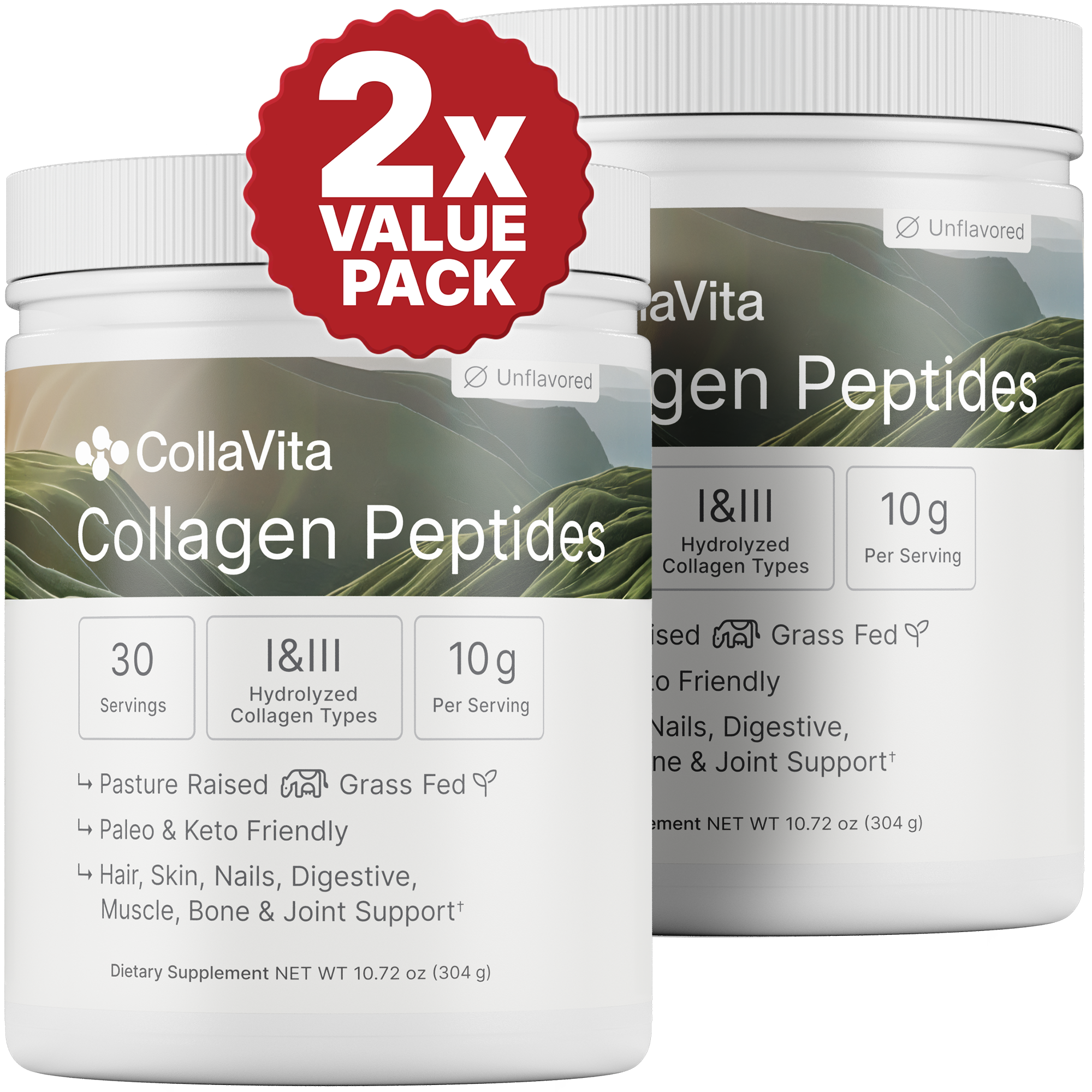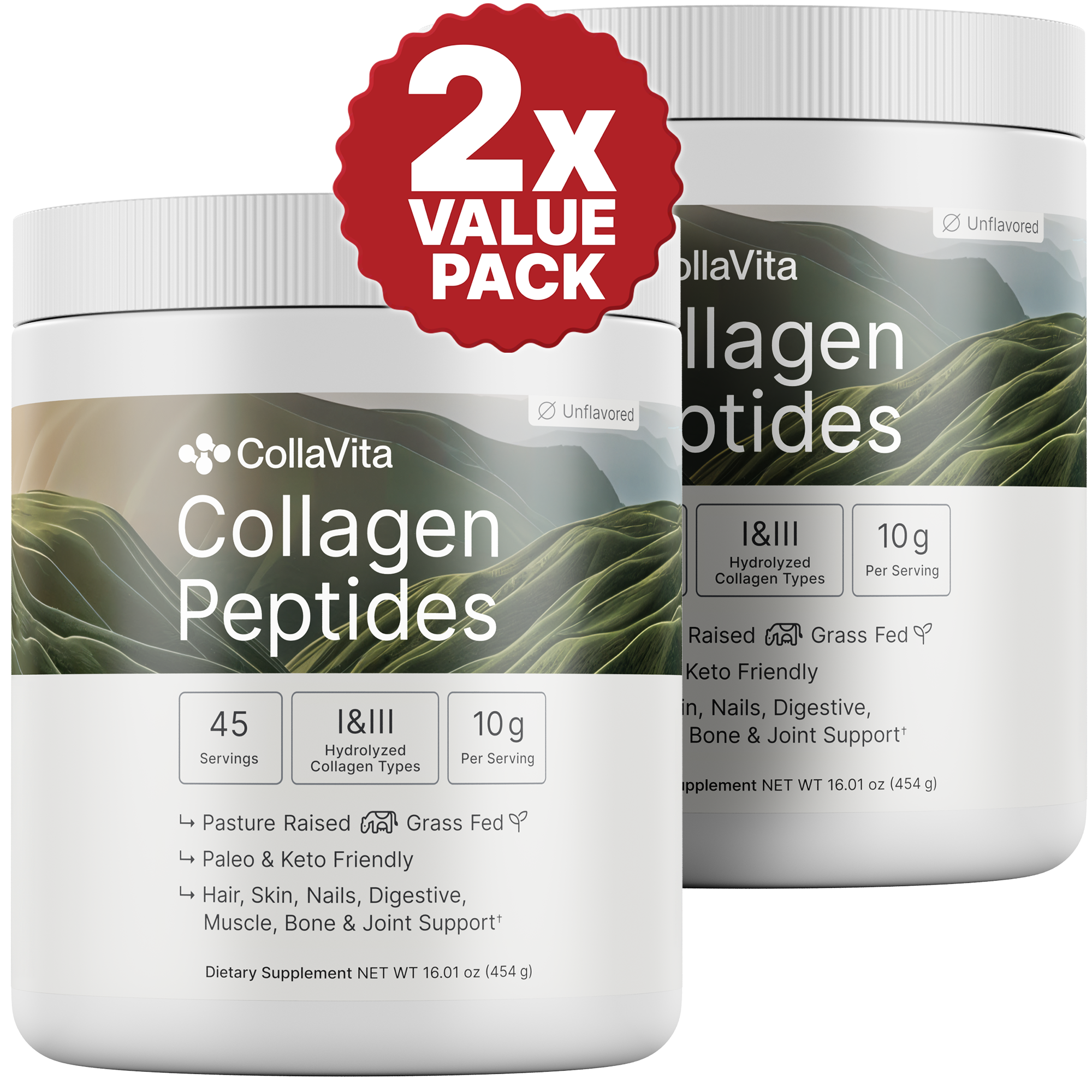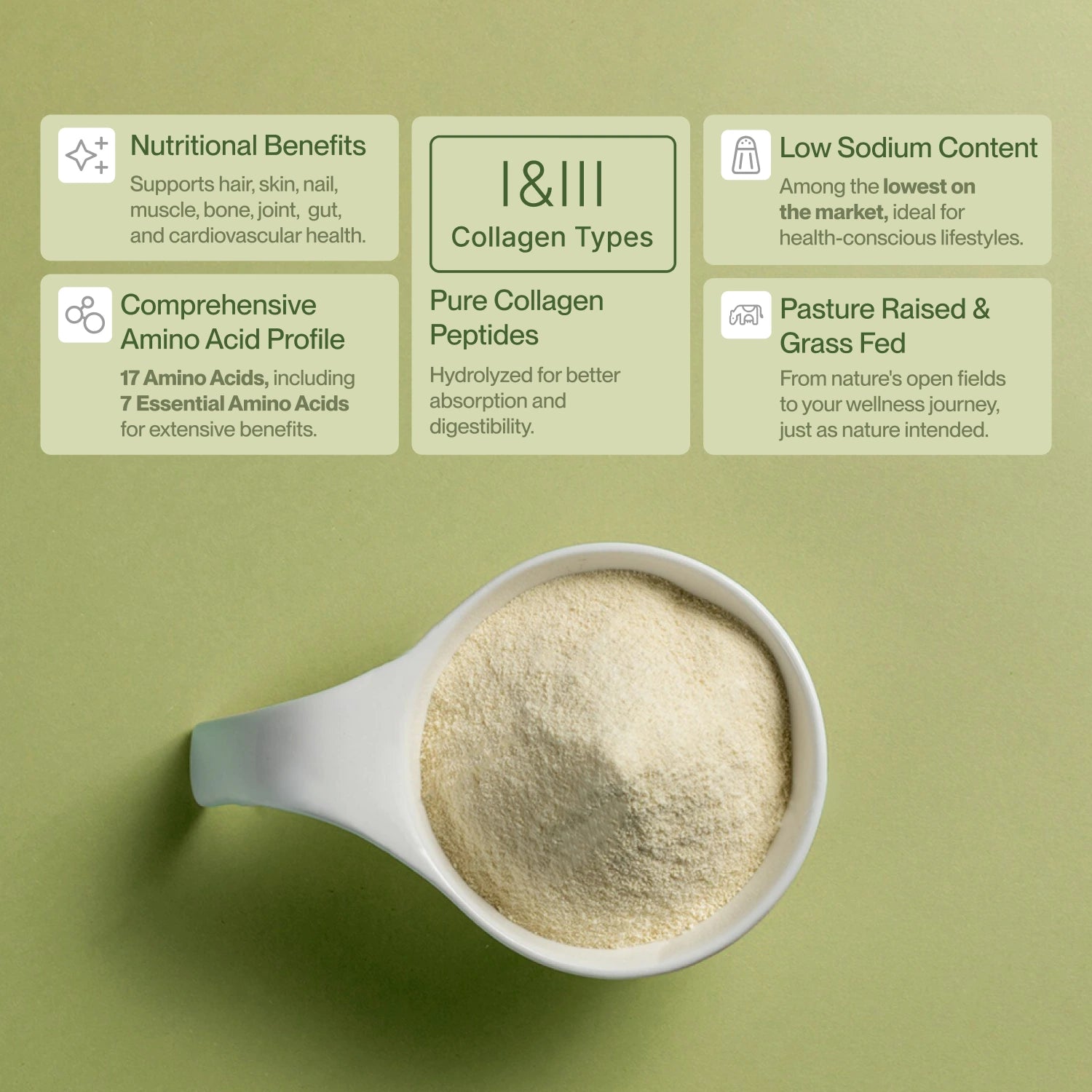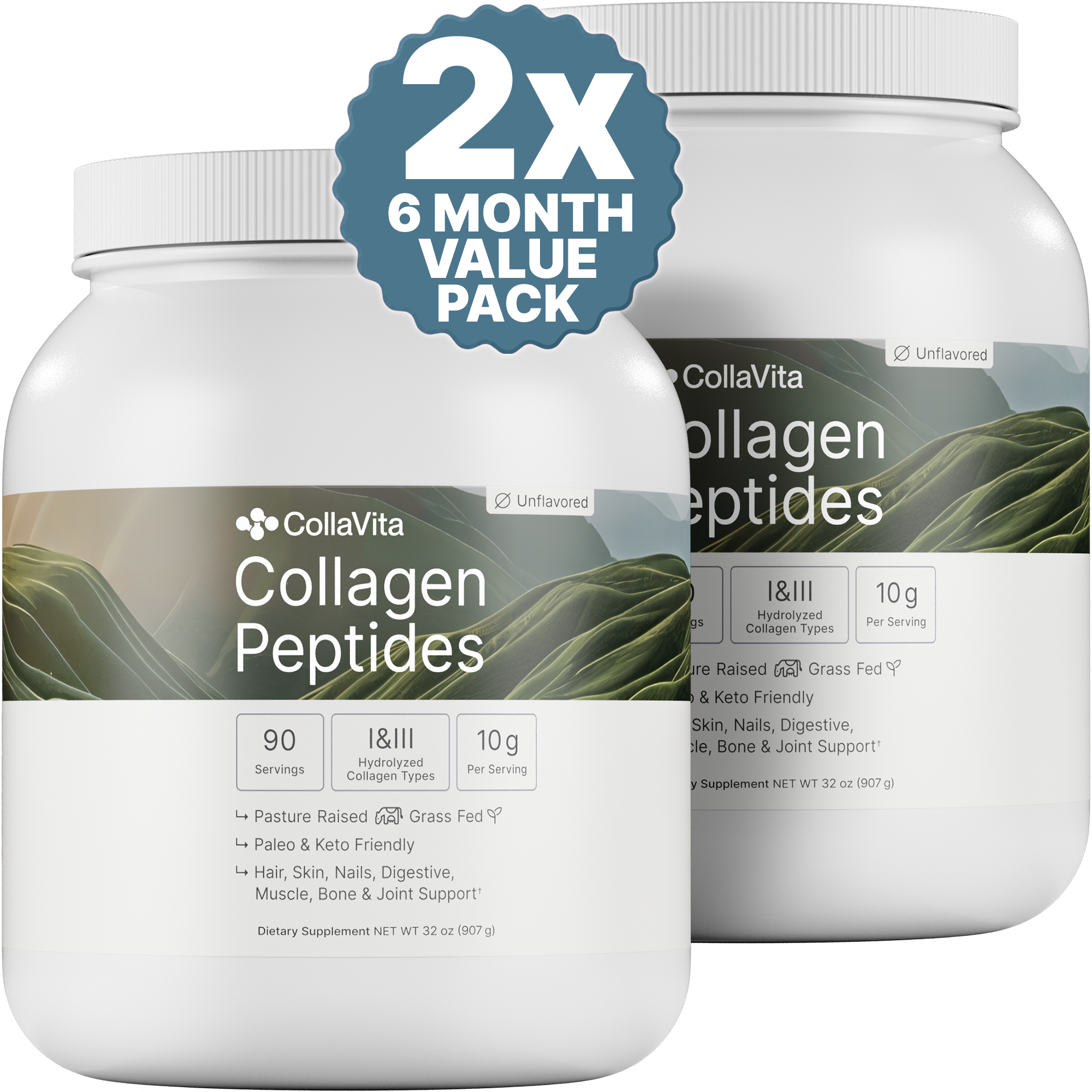How to Determine Your Ideal Daily Collagen Intake?
There is no single, one-size-fits-all dosage for collagen. Your ideal intake is influenced by several factors, including your age, lifestyle, gender, and specific health goals.
Key Factors Influencing Dosage:
- Age: Individuals between 25 and 35 may require a lower maintenance dose, while those over 40 will likely benefit from a higher daily amount to compensate for accelerated loss.
- Lifestyle: Highly active individuals and athletes may require more collagen to support muscle recovery and joint health.
- Goal: The dosage varies significantly depending on whether you are targeting skin health, joint pain, or general wellness.
The best approach is to start with the recommended dosage for your goal and then adjust based on your body's response.
What are the Recommended Collagen Dosages for Specific Health Goals?
Scientific research provides clear dosage guidelines for achieving specific health benefits. The following table summarizes the recommended daily intake based on the desired outcome:
| Health Goal | Recommended Daily Dosage | Collagen Type Focus | Key Benefit | Scientific Source |
|---|---|---|---|---|
| Skin Health (Elasticity, Hydration, Wrinkles) | 2.5 g to 5 g of Collagen Peptides | Type I & III | Improves skin moisture and reduces wrinkle depth. | (1), (2) |
| Joint & Bone Health (Osteoarthritis, Pain) | 5 g of Collagen Peptides OR 40 mg of UC-II Collagen | Type II | Increases bone mineral density and relieves joint pain/stiffness. | (3) |
| Muscle Recovery & Strength (Athletes, Tissue Repair) | 10 g of Collagen Peptides | Type I & III | Supports faster recovery and reduces exercise-related joint discomfort. | (4) |
| General Wellness & Anti-Aging | 2.5 g to 10 g of Collagen Peptides | Type I, II, III, V | Supports overall structural integrity of the body. | (5) |
1. Collagen For Skin Health
Collagen is vital for skin health, and its decline is the primary cause of wrinkles and sagginess. Studies show that a daily intake of 2.5 g of collagen peptides is a suitable starting point to improve skin hydration, elasticity, and moisture. Doses up to 5 g have been shown to further enhance these anti-aging effects.
2. Collagen For Joint And Bone Health
Collagen is a critical component of cartilage, tendons, and bones. Supplementation is highly effective for improving the health of connective tissues and managing conditions like osteoarthritis.
- Hydrolyzed Collagen Peptides (Type I & III): 5 grams daily can increase bone mineral density.
- Undenatured Type II Collagen (UC-II): A smaller dose of 40 mg daily is effective for relieving pain and stiffness in joints.
3. Collagen For Muscle Recovery and Strength
While collagen is not a primary muscle-building protein, its role in supporting joint and tendon health is crucial for athletes. Taking 10 g of collagen supplements daily is recommended to accelerate recovery from injuries and reduce joint pain and discomfort associated with intense training.
4. General Wellness and Anti-Aging
Collagen is the primary structural component of joints, cartilage, tissues, skin, and hair. Supplementing with 2.5 to 10 grams of collagen per day can help reduce the visible signs of aging, such as wrinkles and loss of elasticity, while supporting the overall structural integrity of the body.

What are the Types of Collagen and Their Sources?
Understanding the different types of collagen is essential for choosing the right supplement for your needs.
| Collagen Type | Primary Location in Body | Best For | Common Sources |
|---|---|---|---|
| Type I | Skin, tendons, bones, ligaments, organs | Skin, hair, nails, bone health | Bovine, Marine |
| Type II | Cartilage | Joint and cartilage health | Chicken |
| Type III | Skin, muscles, blood vessels | Skin elasticity, gut health | Bovine |
| Type V | Cell surfaces, hair | Tissue development, cell membranes | Bovine, Chicken |
The most common dosage range across all types is 2.5 to 10 grams per day. For targeted skin benefits, 5 grams of Type I and III is often recommended, while 2 to 5 grams of Type II is suggested for joint health.
When and How to Take Collagen for Maximum Absorption?
The most important factor for maximizing the benefits of collagen is consistency, not the time of day. Collagen supplements can be consumed at any time of the day morning, afternoon, or evening, without impacting their effectiveness.
Collagen Forms and Best Use:
- Powders: The most versatile form. They dissolve easily in hot or cold beverages, making them perfect for mixing into coffee, smoothies, or soups.
- Capsules: Convenient for on-the-go use and precise dosing.
- Liquids: May offer faster absorption and can be easily mixed with water.
To enhance absorption, consider taking your collagen with a source of Vitamin C, as this essential nutrient is a cofactor in collagen synthesis.
What are the Possible Risks of Excessive Collagen Intake?
Excessive collagen intake has possible risks, resulting in collagen side effects. Some people are inclined to develop allergic reactions to excessive collagen intake, while sensitive people may have digestive problems. Therefore, you are recommended to consult your doctor before starting any supplement and take recommended dosages to avoid collagen side effects.
Finding Your Ideal Collagen Dosage
Finding the correct collagen dosage depends on individual goals, age, and lifestyle. For those focused on skin health, taking around 2.5 to 5 grams of collagen peptides per day can improve skin elasticity and hydration, and reduce wrinkles. Individuals looking to enhance joint and bone health, particularly those dealing with conditions like osteoarthritis, may benefit from higher doses, such as 5 grams of collagen peptides or 40 mg of UC-II collagen daily. For athletes aiming for muscle recovery, a daily intake of 10 grams is generally recommended to reduce joint pain and support faster healing.
Adjusting collagen intake based on individual responses is essential for achieving optimal results. Start with the lower end of the recommended dose and monitor how your body reacts over time. If positive effects like improved skin texture or reduced joint discomfort are noticed, continue with that dosage. If results are slower or less noticeable, you may gradually increase the amount while ensuring you do not exceed safe limits. Additionally, factors such as age, lifestyle, and overall health should be considered when determining the right collagen dosage, as older individuals and active people may require higher amounts.
SOURCES
(1) - Kim, D.-U., Chung, H.-C., Choi, J., Sakai, Y., & Lee, B.-Y. (2018). Oral Intake of Low-Molecular-Weight Collagen Peptide Improves Hydration, Elasticity, and Wrinkling in Human Skin: A Randomized, Double-Blind, Placebo-Controlled Study. Nutrients, 10(7), 826.
(2) - Bolke, L., Schlippe, G., Gerß, J., & Voss, W. (2019). A Collagen Supplement Improves Skin Hydration, Elasticity, Roughness, and Density: Results of a Randomized, Placebo-Controlled, Blind Study. Nutrients, 11(10), 2494.
(3) - Rath, Linda (2022, Dec. 21). Can Collagen Supplements Help Arthritis?.
(4) - Khatri M, Naughton RJ, Clifford T, Harper LD, Corr L. The effects of collagen peptide supplementation on body composition, collagen synthesis, and recovery from joint injury and exercise: a systematic review. Amino Acids. 2021 Oct;53(10):1493-1506. doi: 10.1007/s00726-021-03072-x. Epub 2021 Sep 7. PMID: 34491424; PMCID: PMC8521576.
(5) - Campos, L. D., Santos Junior, V. A., Pimentel, J. D., Carregã, G. L. F., & Cazarin, C. B. B. (2023). Collagen supplementation in skin and orthopedic diseases: A review of the literature. Heliyon, 9(4), e14961.
Scientifically Reviewed by Omer (Matt) Sermet


